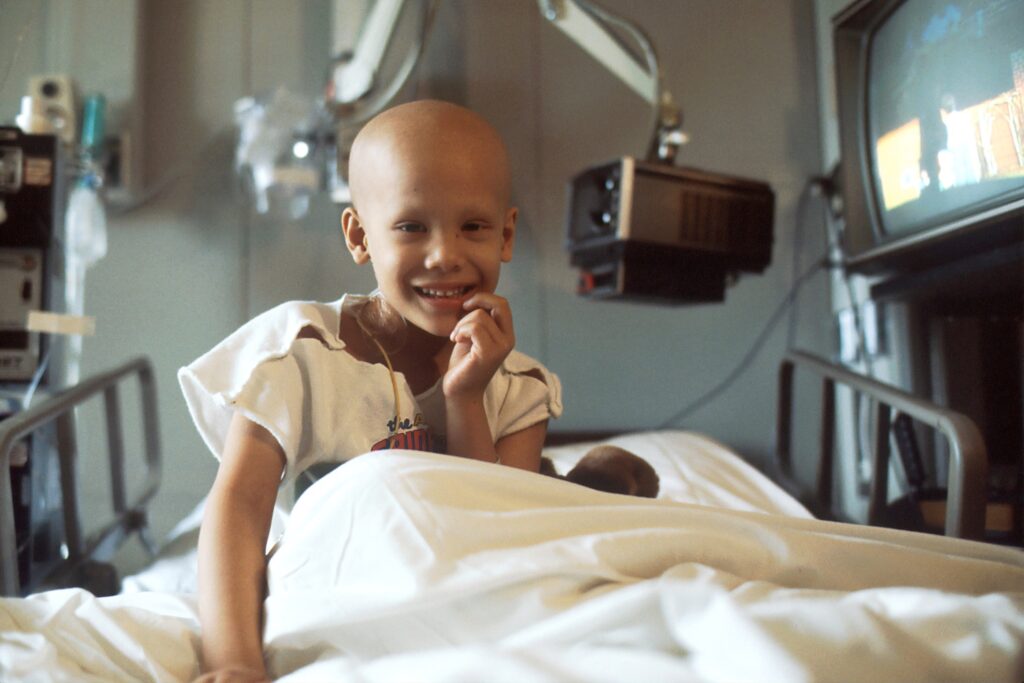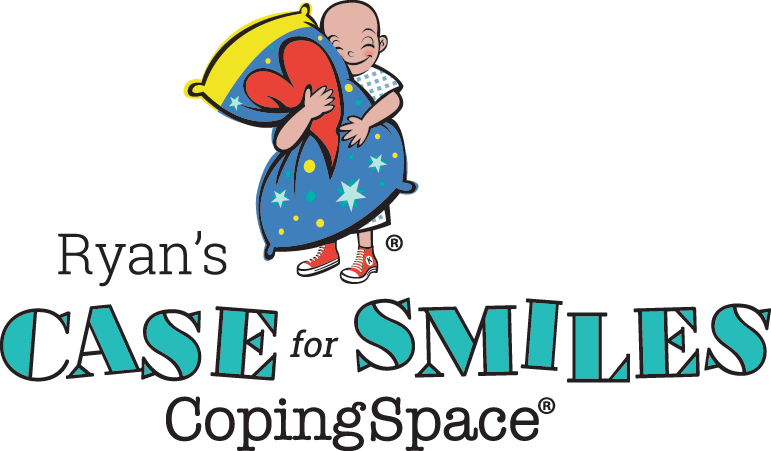BLOG
What to Do When Your Child Is Diagnosed with Cancer or a Serious Illness/Injury
 Your child has been diagnosed with cancer or another life changing illness or injury. Now what? Your head is spinning, you’re panicked and there is SO, SO much information to take in. You are likely worried about your child’s health, your family, and how any of you will cope.
Your child has been diagnosed with cancer or another life changing illness or injury. Now what? Your head is spinning, you’re panicked and there is SO, SO much information to take in. You are likely worried about your child’s health, your family, and how any of you will cope.
Take a deep breath. We’re here to help guide you.
A useful framework to figure out what to do following a child’s diagnosis of cancer or another serious illness or injury is to think about your needs. That’s right, your needs. It may be counter-intuitive when your top priority as a caregiver is your child. But by outlining your needs in the following five areas, you can begin to identify top priorities and create an action plan for the coming days, weeks and months ahead.
- What do you need to know?
- What do you need to help you cope?
- What do you need to support your family?
- What do you need help with?
- What do you need to do now, soon and in the future?
Five Questions to Answer After Your Child is Diagnosed with Cancer and Other Serious Illnesses and Injuries
Below are five key questions to ask yourself in the days following a child’s diagnosis. You do not have to answer all of them right away, or have fully formed thoughts and sentences. There is value in simply getting it all down on paper so you can sort and prioritize your list. From there, you can identify next steps and get a better idea of where things stand.
What Do You Need to Know After Your Child is Diagnosed with an Illness or Injury?
 After your child was diagnosed with a serious illness, your mind likely swirled with questions. This is totally normal and a reasonable response. To get these thoughts under control, it can be helpful to get a notebook to jot them all down. You can write down questions about their specific condition and diagnosis, treatment plan, medical and support services, or alternative treatment options. This can be a helpful exercise before appointments or anytime the unknowns become overwhelming. You might also want to include questions about side-effects and the impact of treatment on daily life.
After your child was diagnosed with a serious illness, your mind likely swirled with questions. This is totally normal and a reasonable response. To get these thoughts under control, it can be helpful to get a notebook to jot them all down. You can write down questions about their specific condition and diagnosis, treatment plan, medical and support services, or alternative treatment options. This can be a helpful exercise before appointments or anytime the unknowns become overwhelming. You might also want to include questions about side-effects and the impact of treatment on daily life.
Then bring this notebook with you to appointments to make sure all your concerns are addressed. You can also use it to keep records of your child’s medications, their medical team, information on treatment plans, or instructions and other important information. (Or check out our free Caregiver Worksheet to track their medical team.)
Be careful where you turn to get your questions answered. The internet and support groups can be incredible sources of information, but they can also be scary and misleading. Your child’s situation and treatment are unique. Go to your medical team first and always verify an outside source.
It can also be helpful to have a second notebook to journal about more personal questions, your thoughts and feelings, or simply family life. Journaling is a useful tool for de-stressing and processsing your emotions. Try using a smaller notebook which you can carry around for whenever inspiration strikes, or for keeping you occupied when you’re stuck in a waiting room.
What Do You Need to Help You Cope When Your Child is Diagnosed with an Illness or Injury?
The days, weeks and months following a child’s diagnosis can bring many difficult and overwhelming emotions. And there are certainly more on the road ahead. Feelings such as anger, sadness, bitterness, grief, and frustration are completely normal. But there may be times when they overwhelm you, making it difficult to function in daily life. That is why it’s so important to identify ways you can de-stress and create a coping plan to help you manage your emotions.
 To get started, think of things that help you relax. Exercise and/or sports, reading and writing, crafts, cooking and seeing friends are just a few examples. You might also enjoy listening to or making music, doing puzzles, playing video games, or simply watching a favorite tv show. Taking deep breathes and meditating are also great ways to calm yourself. There are plenty of tools, apps and videos to help you practice. (Check out our Resources page for a just a few.) And finally, don’t underestimate the value of taking care of your basic needs by getting sleep, eating regular meals, and taking a moment to enjoy a shower. It’s so easy to let self-care fall by the wayside in a moment of crisis, but constantly short-changing yourself is a surefire path to burn out and will make it difficult for you to provide the support your family needs.
To get started, think of things that help you relax. Exercise and/or sports, reading and writing, crafts, cooking and seeing friends are just a few examples. You might also enjoy listening to or making music, doing puzzles, playing video games, or simply watching a favorite tv show. Taking deep breathes and meditating are also great ways to calm yourself. There are plenty of tools, apps and videos to help you practice. (Check out our Resources page for a just a few.) And finally, don’t underestimate the value of taking care of your basic needs by getting sleep, eating regular meals, and taking a moment to enjoy a shower. It’s so easy to let self-care fall by the wayside in a moment of crisis, but constantly short-changing yourself is a surefire path to burn out and will make it difficult for you to provide the support your family needs.
It might also be helpful to identify support persons in your life you can turn to. These could be family members and friends you can talk openly with, a religious leader and/or mental health professionals. And don’t be afraid to let them know they’re on “the list” and ask them to check in regularly. Community support is essential and knowing who to reach out to in a moment of crisis can make it that much easier to do so.
Write down all your coping strategies and keep the list as a reminder in an accessible location. Creating a similar list can also be a great thing to do with children and other family members. That way they have a plan in place and you‘ll know what is most helpful.
You can find more information on the feelings to expect after diagnosis and post-traumatic stress on the What to Expect page. You can also visit our Taking Care of You page for additional coping tips and emotional support.
What Do You Need to Support Your Family After a Child’s Diagnosis?
As a caretaker, your family is probably your top priority. You may be worrying about how they’ll respond to the news of the diagnosis, cope during this difficult period, and just make it through the day. Make a list of things you might need to support them. And remember, you do not need to know how you’ll do it, or take action right away! Just write it down to be addressed in the coming days.
 You might need age-appropriate language to help explain the diagnosis and treatments to the child and their siblings. Or tips on how to navigate these difficult conversations. A child life specialist (CLS) and other hospital personnel at your medical facility can be incredibly helpful with this. You may also want coping tips to help your child/ren process and manage their emotions. The CLS can offer ideas here too, or you can find information on our Children page.
You might need age-appropriate language to help explain the diagnosis and treatments to the child and their siblings. Or tips on how to navigate these difficult conversations. A child life specialist (CLS) and other hospital personnel at your medical facility can be incredibly helpful with this. You may also want coping tips to help your child/ren process and manage their emotions. The CLS can offer ideas here too, or you can find information on our Children page.
Next, you might think about what you need from the school to support your child. This might mean tutoring or virtual learning during treatment, an extended absence, or extra support in the classroom. It’s also important to talk to siblings’ schools, as that is where they spend most of their day. School personnel can be a huge source of support and will be able to watch for warning signs that your children are having difficulty coping. Our School Sibling Support Form is a great way to kick off the conversation.
Similarly, you may need to consider if you’ll need any work accommodations during your child’s treatment. This could mean taking some FMLA leave, or requesting shortened hours or a more flexible schedule. You may also want to look into the details of your health insurance and any additional support, such as an Employee Assistance Program (EAP), that may be provided.
Finally, it’s important to examine your family’s everyday routine. Where will you need additional support? What adjustments might you need to make? What will the new normal look like? You probably don’t have all the answers yet and that’s okay. But it’s important to identify these questions as children thrive on routine. Changes to the everyday can be one of the most upsetting parts of treatment. However, by looking ahead, you can better prepare your family for them and ease the transition.
What Do You Need Help With When Your Child Has Cancer or Another Illness?
 After examining your family’s routine and outlining so many questions, you may be beginning to panic. Don’t worry – no one can or should do this alone. That is why asking for help and reaching out to your community is so important. And trust us, they want to help as much as they
After examining your family’s routine and outlining so many questions, you may be beginning to panic. Don’t worry – no one can or should do this alone. That is why asking for help and reaching out to your community is so important. And trust us, they want to help as much as they
can. In fact, you may be overwhelmed by the influx of support in the days following a child’s diagnosis. Taking a moment to identify what you need will give you a list to reference when someone offers assistance, and allow others to make this difficult time just a bit easier.
For some, logistics may be top of mind. How will you manage meals and groceries? Rides to extracurricular and social activities for siblings? Cleaning and regular household maintenance? Jot down tasks you need to outsource, and even people or companies that could best fill those needs. Not sure where to turn? Researching cleaners and other service providers could be another task on your list that a friend or family member is all too happy to take on.
As your list grows, you may want to look into one of the many websites that help organize community support and keep friends and family informed. Sign Up Genius, Meal Train, Care Calendar and CaringBridge are just a few examples. Your child’s medical team, social worker or child life specialist may also have suggestions. Choose one that feels most intuitive to you and the easiest to maintain. Or make this another task for a family member or friend. And keep in mind, you do not have to use everything on the site or keep everyone updated all the time. Privacy is a right and these services should be seen as useful tools, not just another obligation.
Last of all, think about any financial support you may need in the coming weeks. Medical bills can be large and are a very real stressor for many families. This type of stress can even lead to financial trauma, especially among fathers. That said, many hospitals have payment programs, and social workers may be able to direct you to organizations that offer grants and other forms of financial support. There are also nonprofits that provide free financial guidance to help you navigate these difficult conversations. Finances can be a hard topic for many, but there is no shame in needing help. You are not the only family to have struggled with medical costs, which is why there are so many organizations waiting to support you.
What Do You Need to Do Now, Soon and in the Future?
 Now that you have a list of questions and needs, you can begin to prioritize them by urgency and importance. What questions need to be answered first? What do you need to take care of in the next few days? Think in terms of the days, weeks, and months. Your child may need a test scheduled immediately but you do not need to commit to every step of their treatment plan by lunchtime (despite it feeling that way). Should you have one, you should also consult with your partner about what they feel is missing from the list and most important, which tasks that they will take on.
Now that you have a list of questions and needs, you can begin to prioritize them by urgency and importance. What questions need to be answered first? What do you need to take care of in the next few days? Think in terms of the days, weeks, and months. Your child may need a test scheduled immediately but you do not need to commit to every step of their treatment plan by lunchtime (despite it feeling that way). Should you have one, you should also consult with your partner about what they feel is missing from the list and most important, which tasks that they will take on.
It can be useful to organize the list in a spreadsheet or document. Then you can group things by timing (next week, next month etc.) and track progress and information. Or if that’s not your style, feel free to just handwrite to-do lists or keep it more as a brain dump. Embrace what works for you!
Finally, when in doubt, ask someone to take on a task or offer their opinion. Doctors and others on the medical team are there to help with your questions. And friends, family members and partners can share a large portion of the care burden.
While it is overwhelming and terrifying to have a child diagnosed with cancer or another serious illness or injury, it is something you can handle. You will do your absolute best to care for your child and your family, and don’t have to do it alone. Friends, family and your child’s medical team all have your back. And of course, there are many resources and organizations like CopingSpace® and Ryan’s Case for Smiles® who are all to eager to help.
